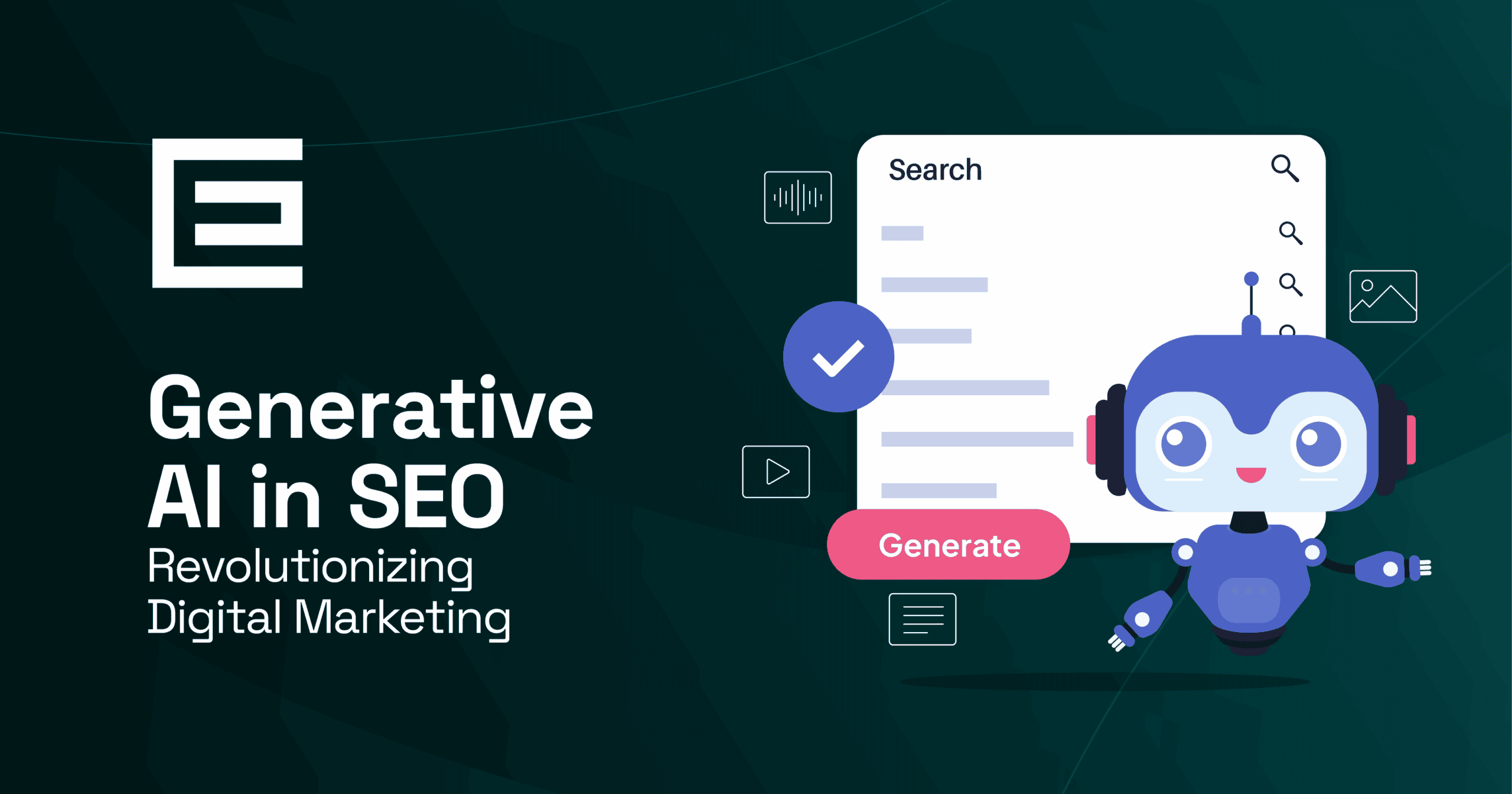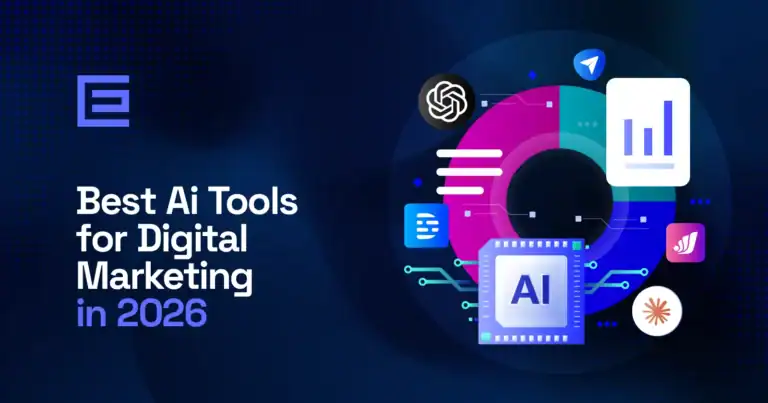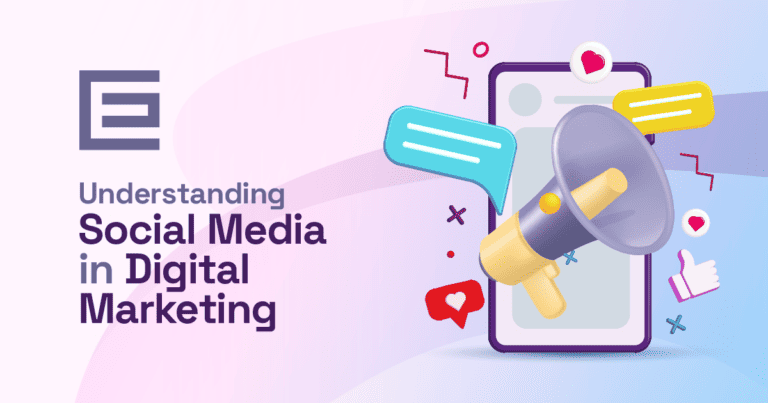Generative AI, a rapidly evolving subfield of Artificial Intelligence, has the potential to transform not only how we interact with technology but also how we approach tasks across various industries. In the realm of SEO (Search Engine Optimization), generative AI presents exciting opportunities to streamline workflows, enhance content creation, and ultimately drive organic traffic and website visibility.
In the past, SEO primarily revolved around keyword optimization, backlinking strategies, and adhering to the ever-changing algorithms of search engines. However, with the introduction of Generative AI, the focus is shifting towards more nuanced and intelligent approaches.
This technology is capable of analyzing vast amounts of data, understanding user intent, and generating content that is not only SEO-friendly but also highly relevant and engaging to the target audience. It’s a leap from the keyword-centric approach to a more holistic, user-focused strategy.
The integration of Generative AI into SEO is not just a trend but a paradigm shift. It’s redefining the boundaries of what’s possible in digital marketing and search engine optimization. As we delve deeper into this topic, we’ll explore how businesses can leverage this technology to gain a competitive edge, the practical applications of Generative AI in SEO, and the challenges and considerations that come with its adoption.
Key Takeaways
- Automate Content Creation: Save time and resources with Generative AI.
- Optimize Keywords: Leverage AI tools like ChatGPT and Jasper for effective keyword research.
- Streamline Technical SEO: Simplify site audits and schema markup with AI assistance.
- Personalize User Experiences: Enhance engagement and conversions through AI-driven personalization.
- Stay Updated: Keep pace with AI advancements to maintain a competitive edge.
- Ethical Considerations: Ensure human oversight and ethical practices when using AI in SEO.

Understanding Generative AI
Generative AI stands at the forefront of the latest advancements in artificial intelligence, representing a significant leap from traditional AI systems. At its core, Generative AI refers to a type of artificial intelligence that is capable of creating new content, whether it be text, images, or even code, that didn’t exist before. This is achieved through complex algorithms that learn from existing data sets and then use this learned information to generate new, original material. Unlike conventional AI, which is primarily focused on understanding and interpreting data, Generative AI takes a step further by actively creating new data that mimics human-like creativity and reasoning.
The distinction between Generative AI and traditional AI becomes particularly evident in the realm of SEO. Traditional AI in SEO has been largely about data processing and analysis. It involves using algorithms to understand search patterns, optimize keywords, and analyze website performance metrics. This form of AI excels in tasks like pattern recognition, predictive analytics, and automating repetitive tasks. However, it typically does not venture into the realm of content creation or ideation.
Generative AI, on the other hand, brings a creative dimension to SEO. It goes beyond analyzing and optimizing existing content; it is capable of generating entirely new and unique content that is both relevant and optimized for search engines. This includes writing articles, creating engaging headlines, and even suggesting content strategies based on emerging trends. Generative AI can mimic the style and tone of existing content, ensuring consistency across a brand’s digital presence, and can adapt to different contexts and audiences, making it a versatile tool in content marketing.
The introduction of Generative AI into SEO represents a shift from data-driven optimization to creative content generation. This technology enables SEO strategies to be more dynamic, responsive, and tailored to specific audiences. It opens up new possibilities for content creation that are not limited by human bandwidth or creativity, allowing for a more scalable and efficient approach to SEO. As we continue to explore the capabilities of Generative AI, it becomes clear that its role in SEO is not just supplementary but potentially revolutionary, offering new ways to engage audiences and improve search engine rankings.
The Role of Generative AI in SEO
Generative AI is rapidly becoming a game-changer in the field of SEO, offering a range of capabilities that extend far beyond traditional optimization techniques. Its role in analyzing competitors, identifying the strengths and weaknesses of SEO strategies, and predicting future trends and user actions is reshaping how SEO professionals approach their craft.
Analyzing Competitors’ Websites
One of the key applications of Generative AI in SEO is the analysis of competitors’ websites. This technology can crawl and analyze vast amounts of data from competitor sites, providing insights that would be time-consuming and complex to gather manually. Generative AI tools can evaluate everything from keyword density and content quality to backlink profiles and site structure. This comprehensive analysis helps businesses understand what their competitors are doing right and where there might be gaps or opportunities for improvement. By leveraging this information, companies can refine their SEO strategies to compete more effectively in their market.
Identifying Strengths and Weaknesses in SEO Strategies
Generative AI excels in identifying the strengths and weaknesses of existing SEO strategies. By analyzing a website’s content and comparing it with industry benchmarks and best practices, AI algorithms can pinpoint areas where the site is performing well and areas that require improvement. This might include suggestions for better keyword integration, content optimization, or technical SEO enhancements. The ability to quickly and accurately assess a website’s SEO performance allows for more agile and effective strategy adjustments, ensuring that SEO efforts are always aligned with the best practices and latest trends.
Predicting Future Trends and User Actions
Perhaps one of the most exciting aspects of Generative AI in SEO is its ability to predict future trends and user actions. By analyzing search query data, user interaction patterns, and market trends, AI algorithms can forecast upcoming shifts in user behavior and preferences. This predictive capability enables businesses to stay ahead of the curve, creating content and strategies that align with future search trends. For instance, if Generative AI identifies an emerging topic or keyword, businesses can quickly create relevant content to capture this new search traffic. Similarly, by understanding potential changes in user behavior, companies can optimize their websites to cater to these future needs, ensuring they remain relevant and visible in search engine results.
In summary, the role of Generative AI in SEO is multifaceted and profoundly impactful. From competitor analysis and strategy optimization to trend prediction and user behavior forecasting, Generative AI is not just supporting SEO efforts but actively driving them forward. As this technology continues to evolve, its influence on the SEO landscape is expected to grow, offering even more sophisticated tools and insights for businesses looking to enhance their online presence.
Integrating Generative AI into SEO Strategies
The integration of Generative AI into SEO strategies marks a significant advancement in how digital marketing is approached. This technology is not just an add-on tool; it’s a shift in creating and optimizing content for search engines. Let’s explore how Generative AI is being used for content creation, enhancing keyword research, and optimizing for long-tail keywords.
Using Generative AI for Content Creation
Generative AI has revolutionized content creation in SEO. This technology can generate high-quality, relevant content at scale, a task that would be incredibly time-consuming and resource-intensive for human writers. By leveraging natural language processing (NLP) and machine learning algorithms, Generative AI can produce articles, blog posts, and even website copy that aligns closely with a brand’s voice and audience’s interests. This content is not only written in a way that’s engaging and informative for readers but is also optimized for search engines. It can include the right balance of keywords, meta tags, and structured data to improve search rankings. The ability to quickly generate diverse content types allows businesses to keep their websites fresh and relevant, which is crucial for maintaining and improving SEO performance.
Enhancing Keyword Research with AI Algorithms
Keyword research is a cornerstone of SEO, and Generative AI has brought a new level of efficiency and depth to this process. AI algorithms can process vast amounts of search data to identify trending keywords, understand search intent, and uncover hidden opportunities that might be missed by traditional research methods. These algorithms can analyze search patterns and user behavior to suggest keywords that have high potential for traffic but low competition. This advanced approach to keyword research enables SEO professionals to craft strategies that are more targeted and effective, ensuring that their content resonates with the right audience and performs well in search engine results.
Optimizing for Long-Tail Keywords
Long-tail keywords are highly specific phrases that are less competitive but can be extremely valuable for SEO. Generative AI can play a crucial role in identifying and optimizing content for these keywords. By analyzing search queries and user interactions, AI can uncover long-tail keywords that are relevant to a business’s products or services. These keywords, often overlooked due to their lower search volumes, can be goldmines for attracting a targeted audience. Generative AI helps in seamlessly integrating these long-tail keywords into content, ensuring that it remains natural and engaging while being optimized for these specific queries. This targeted approach not only drives quality traffic to a website but also improves the chances of conversion, as the content is highly relevant to the user’s search intent.
In summary, integrating Generative AI into SEO strategies offers a comprehensive approach to content creation, keyword research, and optimization. By leveraging the power of AI, businesses can create more effective, targeted, and engaging SEO strategies that resonate with their audience and perform well in the ever-evolving landscape of search engines.
Practical Applications of Generative AI in SEO
Generative AI is not just a theoretical concept; its practical applications in the field of SEO are both diverse and impactful. From content generation and optimization to the analysis of meta tags, title tags, and user engagement data, Generative AI is reshaping how SEO strategies are developed and implemented. Let’s delve into these practical applications to understand how they are enhancing SEO efforts.
Content Generation and Optimization
One of the most significant applications of Generative AI in SEO is in the realm of content generation and optimization. This technology can create high-quality, SEO-friendly content at an unprecedented scale. By leveraging advanced algorithms, Generative AI can produce articles, blog posts, and web copy that are not only relevant and engaging to readers but also optimized for search engines. This includes the strategic placement of keywords, maintaining an appropriate keyword density, and ensuring the content aligns with search intent. Moreover, AI-driven content optimization goes beyond mere keyword insertion; it involves structuring content in a way that enhances readability and engagement, thereby improving the overall user experience and SEO performance.
Meta Tags and Title Tags Analysis
Meta tags and title tags play a crucial role in SEO, influencing both click-through rates and search rankings. Generative AI can analyze and optimize these elements effectively. AI algorithms can generate meta descriptions and title tags that are not only keyword-rich but also compelling to users. This involves understanding the nuances of how certain phrases or words can impact user behavior and search engine algorithms. By optimizing these tags, websites can improve their visibility and attractiveness in search engine results pages (SERPs), leading to higher click-through rates and better overall SEO performance.
User Engagement Data Analysis for Content Strategy
Another practical application of Generative AI in SEO is the analysis of user engagement data to inform content strategy. Generative AI can process and analyze large datasets, including page views, bounce rates, time spent on pages, and user interactions, to glean insights into what content resonates with audiences. This analysis helps in identifying content themes and formats that are most engaging, allowing for the creation of more effective content strategies. For instance, if AI analysis reveals that certain types of content lead to longer session durations or higher engagement rates, businesses can focus on creating more of that content type. This data-driven approach ensures that content strategies are aligned with user preferences and behaviors, leading to improved SEO outcomes.
In conclusion, the practical applications of Generative AI in SEO are transforming the way content is created, optimized, and strategized. By leveraging AI for content generation, meta tag analysis, and user engagement data analysis, businesses can develop more effective, data-driven SEO strategies. This not only enhances their online presence but also ensures that they stay ahead in the competitive digital landscape.
Advanced Techniques and Tools
The integration of Generative AI into SEO strategies has led to the development of advanced techniques and tools that are reshaping the landscape of digital marketing. These tools are not only enhancing the efficiency of SEO practices but are also introducing new capabilities, such as optimizing for conversational text and voice search, conducting experiments in search labs, and analyzing user behavior trends. Let’s explore these advanced techniques and tools in more detail.
AI Tools for Conversational Text and Voice Search Optimization
As voice search becomes increasingly prevalent, optimizing for conversational text and voice queries has become a critical aspect of SEO. AI tools specifically designed for this purpose are now available, offering a way to fine-tune content for voice search. These tools use natural language processing (NLP) to understand and mimic human speech patterns, making it possible to optimize content for the way people naturally speak. This is crucial for voice search optimization, as voice queries tend to be more conversational and longer than text-based searches. By utilizing these AI tools, businesses can ensure that their content is not only discoverable through voice search but also resonates with the user’s intent and manner of speaking, thereby improving user experience and SEO performance.
Generative AI Experiments in Search Labs
The field of SEO is continually evolving, and search labs are at the forefront of experimenting with new Generative AI technologies. These labs conduct various experiments to explore how AI can be used to improve search algorithms, understand user intent, and create more relevant search results. For instance, some experiments focus on using AI to generate predictive models that can anticipate future search trends or user behaviors. Others may explore how AI can improve the personalization of search results. These experiments are crucial for advancing SEO practices and ensuring that search engines continue to provide the most relevant and valuable results to users.
AI-Driven Data Analysis and User Behavior Trends
AI-driven data analysis is another area where advanced tools are making a significant impact. These tools can process vast amounts of data to uncover trends in user behavior, preferences, and search patterns. By analyzing this data, AI can provide insights into how users interact with content, what type of content is most engaging, and how changes in SEO strategies affect user behavior. This level of analysis is invaluable for refining SEO strategies and ensuring they are aligned with current trends and user preferences. For example, if AI analysis reveals a shift in the types of queries users are making, businesses can quickly adapt their content and SEO strategies to meet these new demands.
In summary, the advanced techniques and tools powered by Generative AI are essential for modern SEO strategies. From optimizing for voice search to conducting cutting-edge experiments in search labs and analyzing user behavior trends, these tools are enabling businesses to stay ahead in the rapidly changing world of digital marketing. By leveraging these advanced AI capabilities, companies can ensure that their SEO strategies are not only effective but also future-proof.
Challenges and Considerations
While the integration of Generative AI into SEO strategies offers numerous benefits, it also presents certain challenges and considerations that need to be navigated carefully. From potential SEO pitfalls associated with AI to balancing AI-generated content with human creativity, and addressing ethical considerations, there are several aspects that businesses must be mindful of to effectively leverage this technology.
Navigating Potential SEO Pitfalls with AI
One of the primary challenges in using AI for SEO is avoiding potential pitfalls that could negatively impact search engine rankings. AI-generated content, if not properly monitored and managed, can sometimes lead to issues like keyword stuffing, content redundancy, or even the creation of irrelevant or low-quality content. Search engines are continually evolving to recognize and penalize such practices. Therefore, it’s crucial to ensure that AI tools are used in a way that aligns with the latest search engine guidelines. Regularly updating the AI algorithms and training them with current data can help mitigate these risks. Additionally, keeping a close eye on SEO performance metrics can provide early indications of any issues, allowing for prompt corrective actions.
Balancing AI-Generated Content with Human Creativity
Another important consideration is the balance between AI-generated content and human creativity. While AI can produce content efficiently and at scale, it may lack the nuanced understanding and creative flair that human writers bring. The key is to find a harmonious balance where AI is used to augment human efforts rather than replace them. This can involve using AI for initial content drafts or data-driven insights, which are then refined and enhanced by human editors. This collaborative approach ensures that the content remains engaging, original, and resonates with the target audience, maintaining the brand’s unique voice and perspective.
Ethical Considerations and Best Practices
Ethical considerations are also important when using Generative AI in SEO. This includes issues related to transparency, data privacy, and the potential for AI to perpetuate biases. It’s important to be transparent about the use of AI in content creation, especially in sectors where trust and authenticity are crucial. Ensuring that AI algorithms are trained on diverse and unbiased data sets is essential to prevent the perpetuation of existing biases. Additionally, adhering to data privacy laws and ethical guidelines when collecting and using data for AI training is critical. Following best practices such as these not only helps in maintaining ethical standards but also builds trust with the audience and enhances the brand’s reputation.
In conclusion, while Generative AI offers significant advantages for SEO, it’s important to navigate its use carefully. By being aware of potential SEO pitfalls, balancing AI-generated content with human creativity, and adhering to ethical standards and best practices, businesses can effectively leverage AI to enhance their SEO strategies while maintaining quality, authenticity, and ethical integrity.
FAQs
What is the difference between Generative AI and traditional SEO tools?
Generative AI and traditional SEO tools differ primarily in their capabilities and functions. Traditional SEO tools focus on keyword research, backlink analysis, and tracking search engine rankings. They provide data and insights based on existing content and SEO strategies. Generative AI, on the other hand, goes a step further by not only analyzing data but also creating new content. It uses advanced algorithms to generate text, predict trends, and offer suggestions for content optimization. While traditional tools are analytical, Generative AI is both analytical and creative, offering a more dynamic approach to SEO.
Is Generative AI a replacement for human SEO experts?
No, Generative AI is not a replacement for human SEO experts. Instead, it should be viewed as a tool that augments and enhances the work of SEO professionals. While AI can automate certain tasks and provide valuable insights, it lacks the nuanced understanding and strategic thinking that human experts bring to the table. The most effective SEO strategies often involve a combination of AI-driven efficiency and human creativity and expertise.
How much does it cost to use Generative AI for SEO?
The cost of using Generative AI for SEO can vary widely depending on the tools and services chosen. Some AI platforms offer subscription-based models, while others may charge based on usage or features. Prices can range from affordable solutions suitable for small businesses to more expensive, enterprise-level offerings. It’s important to evaluate the cost against the potential ROI and choose a solution that fits your business needs and budget.
What are the legal and ethical considerations of using Generative AI for content creation?
When using Generative AI for content creation, it’s important to consider legal and ethical issues such as copyright, data privacy, and transparency. Ensuring that the AI-generated content does not infringe on existing copyrights and adhering to data privacy laws are crucial. Ethically, it’s important to be transparent about the use of AI in content creation, especially in sectors where authenticity and trust are key. Additionally, care should be taken to avoid biases in AI-generated content.
How can I ensure that my Generative AI content is high-quality and accurate?
To ensure high-quality and accurate AI-generated content, it’s important to use reputable AI tools and platforms known for their efficiency and accuracy. Regularly updating and training the AI algorithms with current and diverse data sets can improve the quality and relevance of the content. Additionally, having human oversight, where AI-generated content is reviewed and refined by human editors, can ensure accuracy and maintain the desired quality.
How does Generative AI optimize content for voice search?
Generative AI optimizes content for voice search by using natural language processing (NLP) to understand and mimic human speech patterns. This allows the AI to create content that is conversational and naturally phrased, matching the way people speak during voice searches. AI can also analyze voice search queries to identify key phrases and questions, ensuring that the content is optimized for these terms. This makes the content more discoverable and relevant for voice search queries.
Wrapping it Up
The Future of SEO with Generative AI
The integration of Generative AI into SEO heralds a new era in digital marketing, one where the boundaries of content creation and optimization are continually expanding. The future of SEO with Generative AI is poised to be more dynamic, efficient, and tailored to the evolving needs of users and search engines alike. As AI technology advances, we can expect even more sophisticated tools that not only generate content but also provide deeper insights into user behavior, search trends, and content performance. This progression will likely lead to more personalized and engaging user experiences, higher content relevance, and improved search engine rankings. The role of SEO professionals will evolve alongside these technologies, focusing more on strategy development and creative input, while leaving data analysis and content generation to AI.
Embracing AI Technology for Competitive Advantage
For businesses looking to stay ahead in the competitive digital landscape, embracing AI technology is no longer just an option; it’s a necessity. Generative AI offers a significant competitive advantage by enabling the creation of high-quality, SEO-optimized content at scale, providing insights for data-driven decision-making, and adapting to the latest search engine algorithms. Companies that leverage these AI capabilities can expect to see improved efficiency in their SEO strategies, better engagement with their target audience, and a stronger online presence. However, it’s important to approach AI integration thoughtfully, balancing technology with human creativity and expertise, and adhering to ethical standards. By doing so, businesses can harness the full potential of Generative AI in SEO, driving growth and success in an increasingly digital world.







